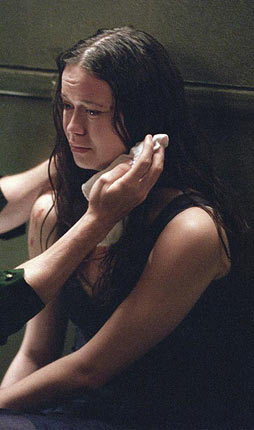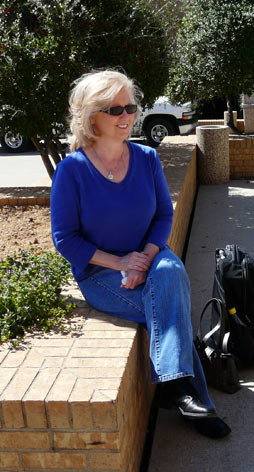By Michelle Terronez/reporter
Educating women is important, a South Campus instructor of education told students last week. It has a trickle effect; it inspires women to make a difference.
Altheria Gaston presented Want Peace? Educate Women March 4 as part of the South Campus celebration of Women’s History Month.
The hour-long seminar gave students and teachers a glimpse of the worldwide struggles women face, especially with education.
“Girls who receive an education have a higher earning potential, show improved health outcome … [and] are more likely to educate their own children,” she said
Co-presenter Bhavani Parpia, director of international business for Hurst-Euless-Bedford ISD, turned the audience’s attention to a list of statistics concerning women and the economy.
Women do two-thirds of the world’s labor, produce 50 percent of the world’s food and earn only 10 percent of the income. And two-thirds of the world’s illiterate adults are women, Parpia said.
According to UNICEF, between 1996 and 2003, more than twice as many children whose mothers had no education were not in school—36 percent compared to 16 percent for children of mothers with some education.
Both presenters provided lists of organizations that help uneducated women and children.
Gaston spoke briefly about sponsors including Greg Mortenson, the co-founder and executive director of the non-profit Central Asia Institute, and Oprah Winfrey, creator of the Oprah Winfrey Leadership Academy for Girls.
Both sponsors see the importance of encouraging education, literacy programs and greatness for girls in developing countries.
Parpia said another non-profit organization, Women for Women, offers skills to women in both traditional and non-traditional job areas, focusing on their economic self-sufficiency.
Cheryl Taylor-West, instructor of psychology and sociology on South and NE campuses, was among the many attending the seminar. West said she already places a focus on issues women face, such as education, in her classes.
“[From this seminar] we see not only how it can change the family you live with, but your neighborhood, your community, our country and globally,” she said.
The seminar began with a quote by Dr. Johnnetta Betsch Cole, former president of Bennett College, which established the theme of the session.
“When you educate a man, you educate an individual,” she said. “When you educate a woman, you educate the whole family.”

























